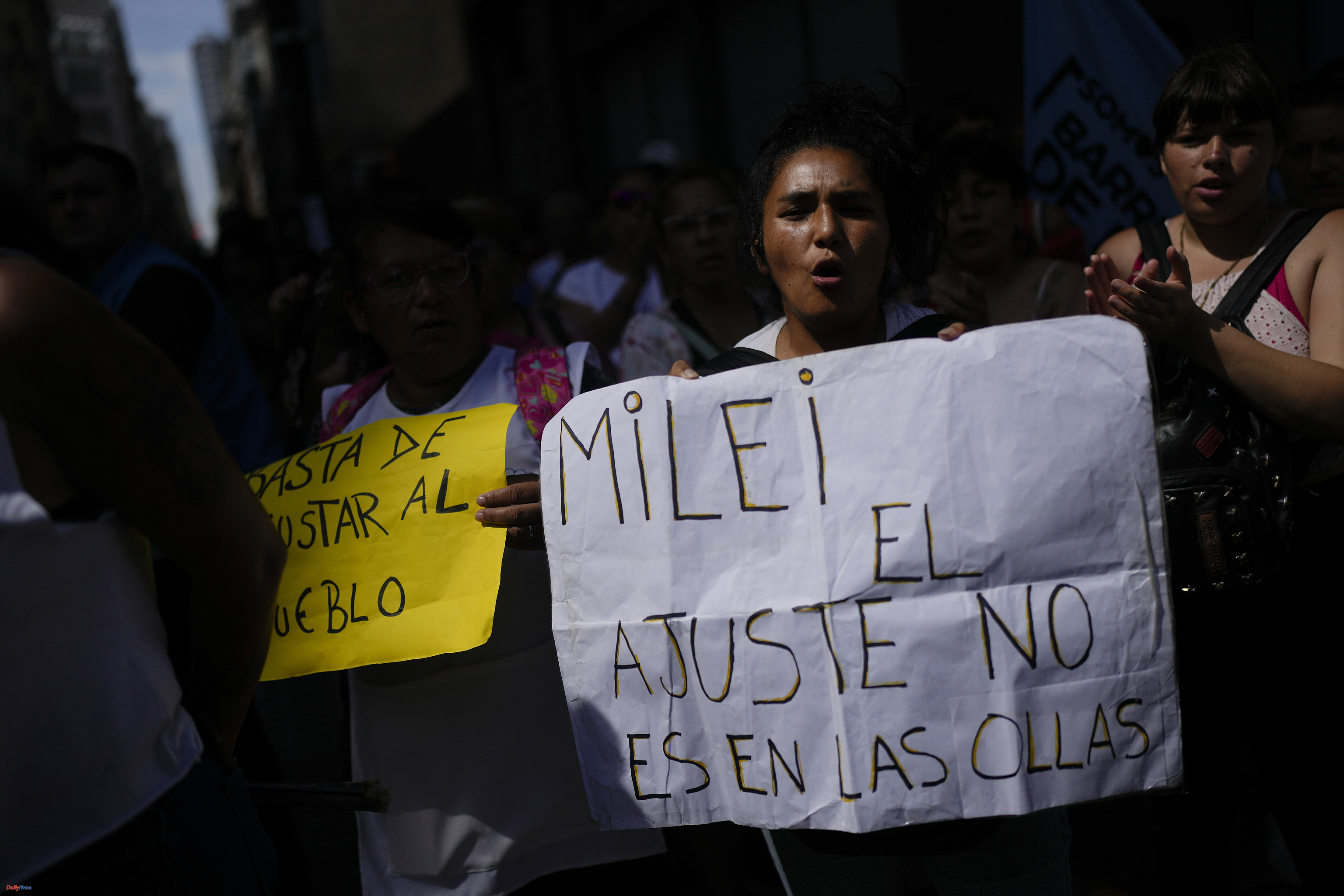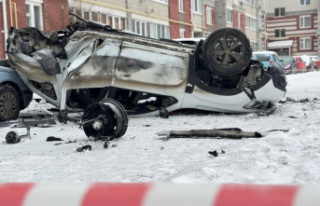Justice and Parliament showed their limits to Javier Milei in his fourth week as president of Argentina, stopping the profound ultraliberal change that, according to the Argentine president, will show very positive effects in 15 years.
"Your children and grandchildren are going to live wonderfully well," Milei said during an interview in which he explained that the consequences of his plan to liberalize and deregulate the economy will be seen "in 15 years."
Although the prospect of an improvement in their situation within a decade and a half generated great disappointment for many Argentines, that promise implies a certain fine tuning on the part of the president, who in his end-of-year message assured that GDP per capita would would multiply by 10 in 45 years to reach "levels similar to those of Ireland."
Thus, in a subsequent interview, Milei said he had "good news" and explained that "in convergence processes, two thirds of the improvements occur in the first third." That is, in 15 years.
Beyond the astonishment of Argentines at a president who, in the midst of crazy inflation and a collapse of salaries, promises them that their situation will improve significantly, but in the year 2039, Milei is having some difficulties in carrying out those plans.
The mega Decree of Necessity and Urgency (DNU) signed on December 20 found brakes in Justice based on presentations by the General Confederation of Labor (CGT), the powerful Peronist union center.
After a series of precautionary measures by labor court judges who ruled in favor of the CGT, the government obtained a partial victory with the appearance of a contentious administrative court judge who claimed for himself any judicial presentation regarding the DNU.
At the parliamentary level, the Senate cooled the single ballot project for the general elections by asking for more time to study it. Peronism is the main opponent of this change, which implies abandoning the party ballot system, prone to electoral mischief.
The DNU and the 'Omnibus Law' presented later were also questioned by several governors of the country, who forced modifications in the fishing section: the proposed liberalization and deregulation were of such a level that they left Argentina's fish wealth at risk. mercy of the large international fleets.
According to local media, there are divisions in the government over how to deal with Peronist union leaders and Peronism in general.
"Javier Milei began to notice this week the limits of his intention to convert his victory in the runoff into true power to implement the changes that he considers decisive for his management," analyst Ignacio Miri said in Clarín.
"There are differences in the Cabinet about the way to deal with the CGT. Some ministers and officials want to continue negotiating with the unions and others insist that one of the tasks of La Libertad Avanza is to quickly and definitively end the obstacles to the companies that "puts the model of union organization that exists in Argentina today."












